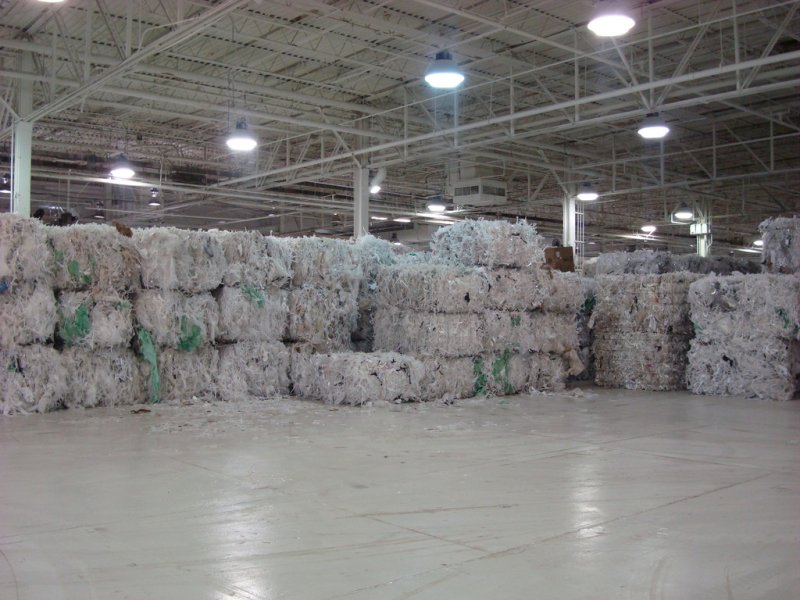Bales of post-consumer plastic waste await recycling at the Nextlife plant in Frankfort, Ky. (Courtesy of Nextlife)
CHICAGO, April 3 (UPI) -- Don't look now but that new plastic bowl in the cupboard may not be adding to oil consumption and may have kept a bunch of stuff out of a landfill.
More and more housewares manufacturers are getting interested in sustainability and are tapping Nextlife, the Florida company that takes manufacturers through the process of converting from virgin resins to recycled resins, to take tons of plastic hangars, shopping bags and strapping materials out of the waste cycle.
Spokeswoman Catherine del Spina said Nextlife takes manufacturers through the design process, partnering with the International Housewares Association to help make the industry greener -- and she says interest is growing among the nation's largest companies.
"There's a hotline available on the IHA Web site. They can call and speak to our green guru," said del Spina, who comes from a design background with the Pottery Barn. "We were positioned at this year's housewares show in the Going Green booth. We had Fortune 50 companies coming into the booth and saying they're not sure about how to go about converting. A hotel came in. Their guests are asking for it."
Del Spina noted only about 10 percent of all the plastic produced is being recycled. Nextlife takes post-consumer plastics -- not the stuff consumers are throwing into recycle bins, rather the stuff that gets thrown out at the retail level -- including polystyrene, polyethylene and polypropylene, breaking them down into bisphenol A-free resins that can then be reused, processing 90 million tons annually at its plant in Frankfort, Ky. The company has plans to open a second plant later this year.
"Any product made of virgin resin can be made from Nextlife resin -- collanders, cutting boards, plastic cups," she said, adding the Food and Drug Administration has approved the resins for food-safe products.
Though the company will not detail the specifics of its process, a spokesman said a "combination of mechanical, chemical and human separation activities" are involved. The process took three years to develop and is continuously being tweaked.
Nextlife itself was formed about 2 1/2 years ago and combined with Mountain Valley, a recycling company that has been around for more than four years that decided to keep the Nextlife moniker when it took over late last year.
Using recycled resins is actually cheaper for manufacturers but that's not Nextlife's goal.
"We don't sell based on cost," del Spina said. "It starts and stops with sustainability. Our goal is not to do business with people who just want to buy based on price. On a normal day, our resin might be 10 percent less. Now it's considerably less (with the price of oil skyrocketing). Price is not the issue. The material is a step to sustainability.
"When given the opportunity to make a choice and all things are equal, consumers are definitely voting to buy the green product. But the green product has to deliver. Historically, they have not delivered so well. But the designs have become fantastic. It's changing very quickly."
Del Spina said walking the aisles of last month's housewares trade show in Chicago, she saw "pockets of sustainability" but manufacturers are not yet pushing it as a marketing tool. Soon, she said, that all will change.
Nextlife's press materials say the company's recycling operation annually saves some 550,000 barrels of oil, 360 million kilowatt hours of electricity, greenhouse gas emissions equal to 25,000 cars and the energy equivalent of 28 million gallons of gasoline.
The recycled resins can be mixed with virgin resins or used on their own to make injection molded products.















